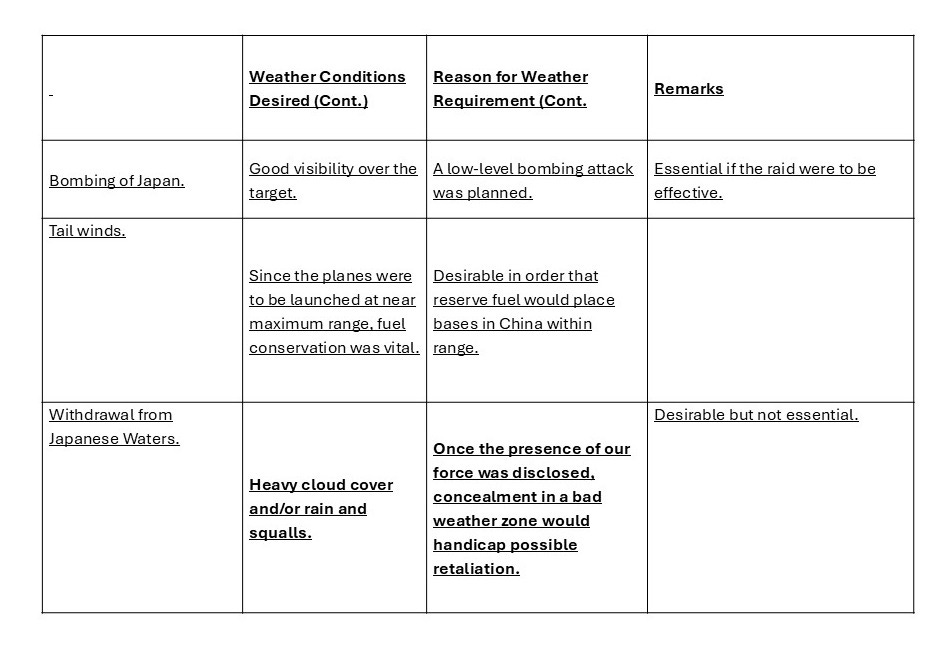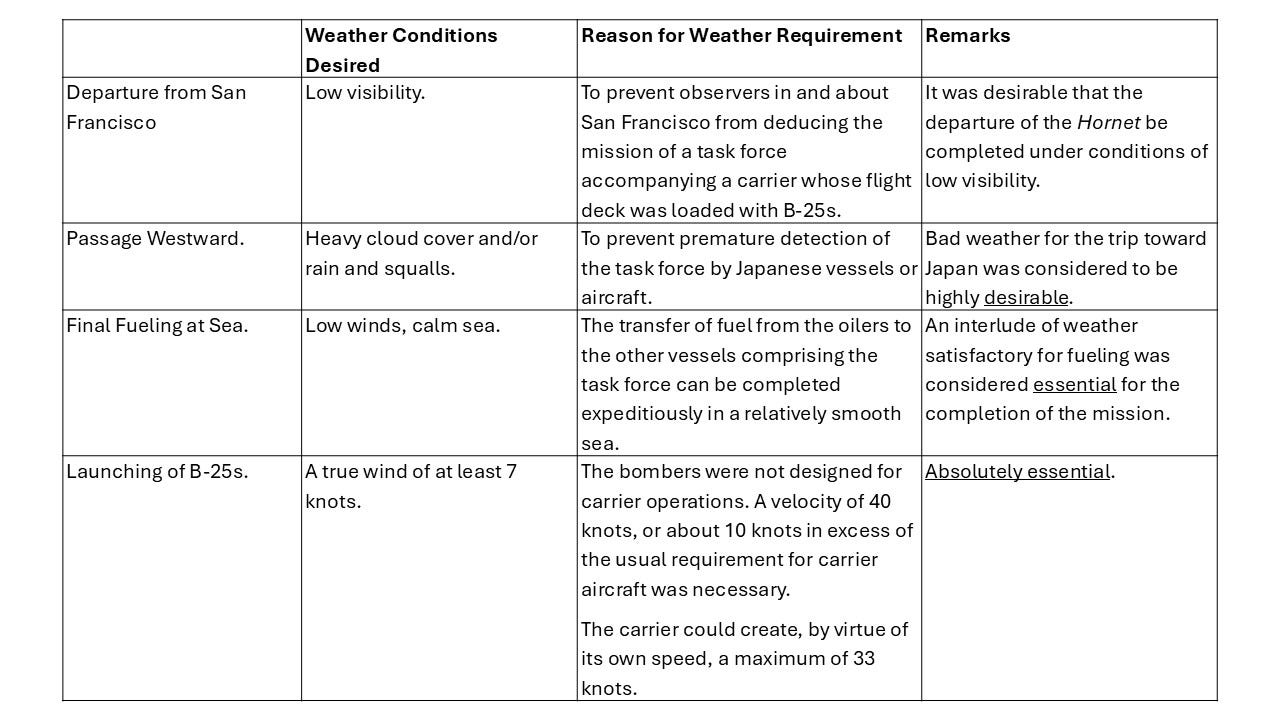Interesting factoids about the Doolittle Raiders’ Story.
Were they planned for or were they merely coincidental?
I run across interesting factoids with every story I research. While some factoids are anecdotal, others help me see how the past connects with today, revealing that history really is one long story. Then there are ones that leave me wondering how coincidental they really are. I found some like that with the Doolittle Raid and decided to look into them.
Factoid #1 - The Original Date for the Doolittle Raid coincided with the anniversary of the start of the American Revolution.
Last Friday, April 18, marked the 83rd anniversary of the Doolittle Raid. Saturday, April 19, marked the 250th anniversary of “the shot heard ‘round the world” that ignited the American Revolution. But, think about this. The Doolittle Raid was originally planned for the morning of April 19. If they had kept to the original timetable, April 19 would be the anniversary date for both events.
Interesting, right? I thought so and found myself pondering whether they planned it that way. Or perhaps they chose the morning of April 19 because it fell on a Sunday since the Pearl Harbor attack occurred on a Sunday morning. Then again, perhaps the choice of day and date had nothing to do with either event and was just a coincidence.
Factoid #2 - There is a connection between the Tora, Tora, Tora code word for the Pearl Harbor Attack and the lead pilot who uttered it, signaling the beginning of the attack.
Why am I talking about Pearl Harbor? First, remember that the attack on Pearl Harbor led to the Doolittle Raid. Second, the most famous person saved because of the Doolittle Raid was none other than Mitsuo Fuchida, the commander of the Pearl Harbor attack. So his story links these two historical events together.
Anyway, in reading about Mitsuo Fuchida again, I noticed something about the signal for the Pearl Harbor attack that I hadn’t seen before. Tora translates to tiger in English. Fuchida was born in the year of the tiger. That made me wonder whether he chose the code? Or did one of his superiors choose it, knowing he was born in the year of the tiger? Or was it just a coincidence?
Factoid #3 - The Weather
Some of you are probably wondering why I looked at the weather. After all, we know that no human being can plan the weather. Weatherman can’t even accurately predict it! Regardless of those truths, military strategists often consider weather conditions in determining when to engage the enemy. For example, Eisenhower delayed D-Day because of a storm that blew in unexpectedly. That’s not what happened in the Doolittle Raid. Still, the weather affected the raid, and I uncovered some very interesting facts on it.
“Have you entered the storehouses of the snow
or seen the storehouses of the hail,
23 which I reserve for times of trouble,
for days of war and battle?
Because of the above verses from Job 38, I always wonder about the weather. Consequently, I found myself looking at the weather and speculating what, if any, role it played in the Doolittle Raiders. I came up with two possible scenarios.
Scenario #1 - Launching early made the raid possible.
After they bombed Tokyo and a few other cities, they flew south, where they encountered a violent storm. If they had kept with their original timetable, they might have encountered the storm, possibly hindering their success. For that to happen, however, the storm would have needed to move up the coast towards Tokyo.
Does that mean the early launch helped the raid succeed? It sounded plausible, but I couldn’t find anything to support that hypothesis. The more I thought about it, the more it seemed pretty sketchy. So I began to consider a different scenario.
Scenario #2 - The storm served to cover their escape.
Sort of like the cloud by day and the fire by night prevented Pharaoh’s troops from seeing the Israelites in Exodus. Additionally, the storm possibly delayed the Japanese from launching a search for them. The second scenario sounded much more likely.
As I mulled over both scenarios, I stumbled across some very interesting data during an internet search. It turns out that the strategists considered the weather in planning for the Raid!
From start to finish, the weather requirement for the mission were exceedingly stringent.
Aside from the weather conditions required for the actual launching of the aircraft, weather was relied upon to furnish concealment from the time of departure from San Francisco harbor to the time of closest approach to Tokyo and for the trip back to Pearl Harbor.
You know what else I discovered? They pretty much got what they were looking for. During the raid, the weather was calm with clear skies. Afterward, they got the tail winds they needed to conserve their fuel and the storm to conceal them from the enemy. Incredible, right? There was one slight deviation. The storm preceded the tail winds.
“Then a miracle happened” ~ Tom Casey (manager of the Doolittle Raiders reunions)
“The crew, who left 10 hours and 200 miles earlier than expected, picked up a tailwind that carried them to the coast of China. The Japanese knew about the tailwind; they called it the divine wind," Casey said. "That wind, which a lot of pilots and crews said was 'God's hand,' was able to get most of the B-25s over the China coast.”
I can’t remember the source, but I recall one raider mentioning the wind as well. He was amazed at how the wind shifted, allowing their fuel to carry them further. How much further?
That strong tailwind added seven hours to their airtime. Without it, none of them would have reached China.
The tailwind gave them seven hours more! Casey was right, it was a miracle. Incredibly, it was so remarkable that it became part of the historical record. Britannica’s website even mentions them in its entry on the Raid.
If it proved impossible to make it to the Chinese coast, pilots were ordered not to divert to the Soviet Union, but to proceed as far west as possible, ditch their planes at sea, and make their way to shore in rubber boats. This would prove unnecessary for most of the aircraft, as they were aided by a 25 mile-per-hour (40 km-per-hour) tailwind throughout the last 1,200 miles (1,900 km) of their journey.
Lightbulb moment #1
After looking at the weather for the raid itself, I looked back at the first part of their wish list and realized that the weather “cooperated” right from the beginning!
Lightbulb moment #2
When I saw that they essentially got their wish list, I wondered whether someone had prayed over it. From my reading, I’m fairly certain that at least one person prayed for the wind to shift. That said, others were probably praying as well. After all, at least four of the Raiders were Christians. Plus, many of them came from Christian families. Jacob DeShazer would learn later that his mother was praying for him at the exact moment he was forced to bail out. No doubt God used her prayers to help him land safely.
I suspect other mothers, fathers, families, and friends were praying not just for the weather but for the men as well. Moreover, I have little doubt that their prayers moved the hand of God, conjuring up the miraculous tail winds that spared their lives.
We may wonder whether the code signal, Tiger, Tiger, Tiger was selected as a nod to Fuchida or whether it was a coincidence. We may wonder whether the original date for the Doolittle Raid was selected to occur on the anniversary of “the shot heard ‘round the world” or whether it was just a coincidence.
However, we don’t have to wonder whether the near-perfect weather conditions were a coincidence. We know that the God of the universe, whom the wind and seas obey, planned the weather conditions, bringing the wind, rain, and sun right at just the right moment.
Nor was the early launch a coincidence. Some undoubtedly would point out that the enemy’s actions forced them to launch the raid early. True, the enemy always has a say in any attack, but you know what? They don’t have the final say. God does. He always does. Not only does he control the weather, He controls history. He ensured their success not merely to win an earthly battle but a spiritual one. Their story is part of His story to bring the Gospel to the Japanese people. There was nothing coincidental about the weather or the early launch. He planned it all.





